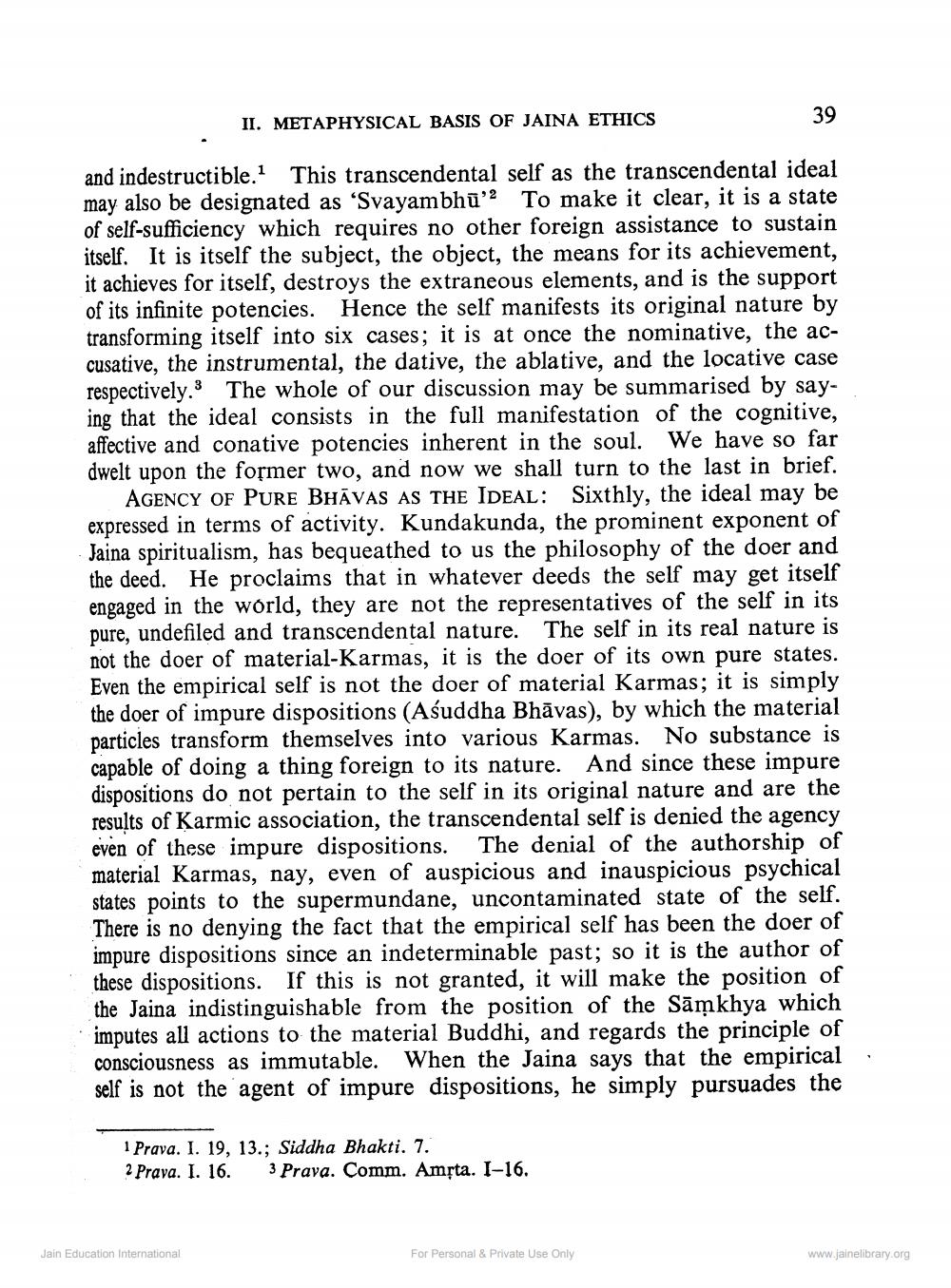________________
II. METAPHYSICAL BASIS OF JAINA ETHICS
and indestructible.1 This transcendental self as the transcendental ideal may also be designated as 'Svayambhu'2 To make it clear, it is a state of self-sufficiency which requires no other foreign assistance to sustain itself. It is itself the subject, the object, the means for its achievement, it achieves for itself, destroys the extraneous elements, and is the support of its infinite potencies. Hence the self manifests its original nature by transforming itself into six cases; it is at once the nominative, the accusative, the instrumental, the dative, the ablative, and the locative case respectively. The whole of our discussion may be summarised by saying that the ideal consists in the full manifestation of the cognitive, affective and conative potencies inherent in the soul. We have so far dwelt upon the former two, and now we shall turn to the last in brief.
AGENCY OF PURE BHAVAS AS THE IDEAL: Sixthly, the ideal may be expressed in terms of activity. Kundakunda, the prominent exponent of Jaina spiritualism, has bequeathed to us the philosophy of the doer and the deed. He proclaims that in whatever deeds the self may get itself engaged in the world, they are not the representatives of the self in its pure, undefiled and transcendental nature. The self in its real nature is not the doer of material-Karmas, it is the doer of its own pure states. Even the empirical self is not the doer of material Karmas; it is simply the doer of impure dispositions (Aśuddha Bhavas), by which the material particles transform themselves into various Karmas. No substance is capable of doing a thing foreign to its nature. And since these impure dispositions do not pertain to the self in its original nature and are the results of Karmic association, the transcendental self is denied the agency even of these impure dispositions. The denial of the authorship of material Karmas, nay, even of auspicious and inauspicious psychical states points to the supermundane, uncontaminated state of the self. There is no denying the fact that the empirical self has been the doer of impure dispositions since an indeterminable past; so it is the author of these dispositions. If this is not granted, it will make the position of the Jaina indistinguishable from the position of the Samkhya which imputes all actions to the material Buddhi, and regards the principle of consciousness as immutable. When the Jaina says that the empirical self is not the agent of impure dispositions, he simply pursuades the
1 Prava. I. 19, 13.; Siddha Bhakti. 7.
2 Prava. I. 16. 3 Prava. Comm. Amṛta. I-16.
Jain Education International
39
For Personal & Private Use Only
www.jainelibrary.org




